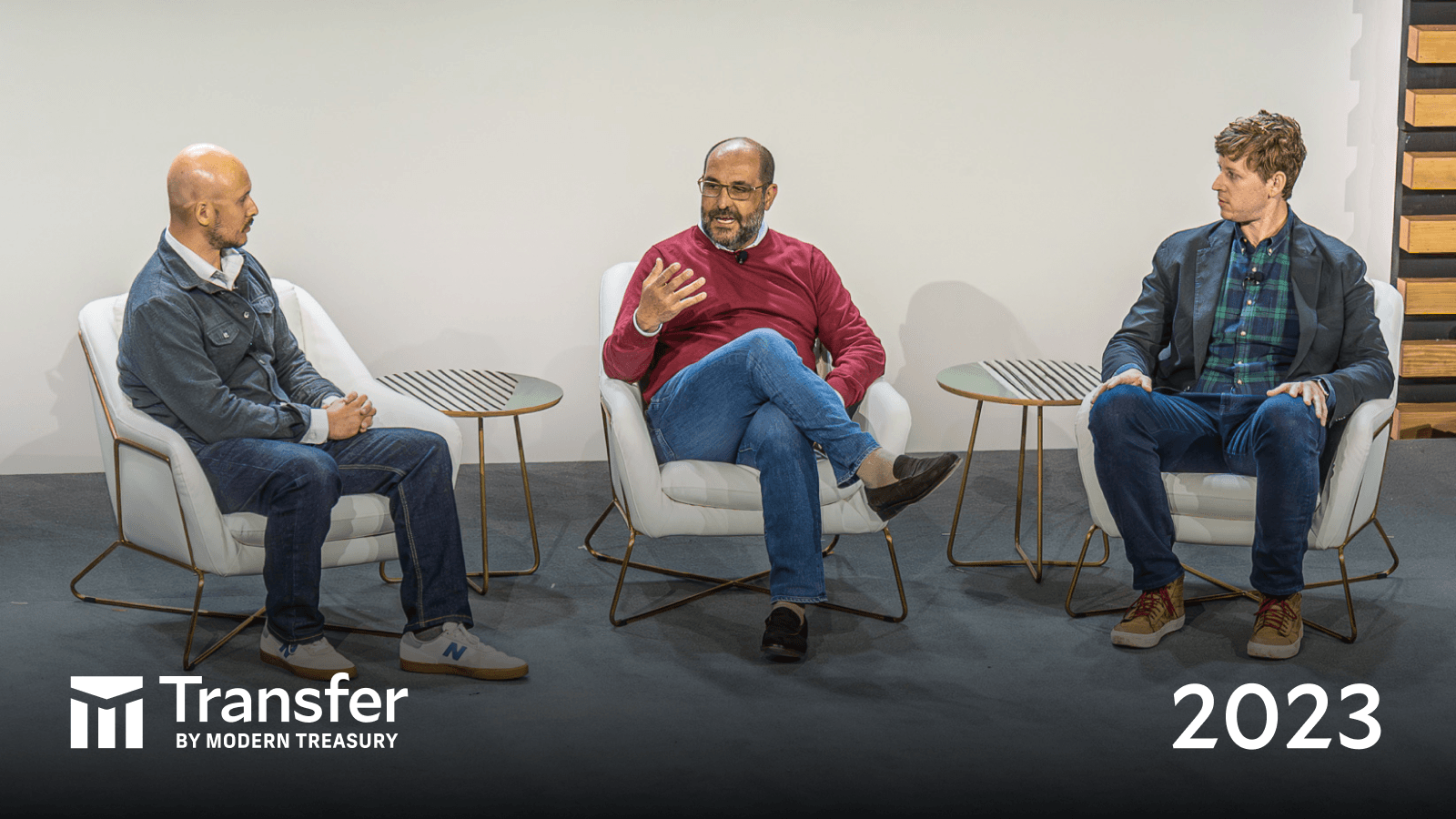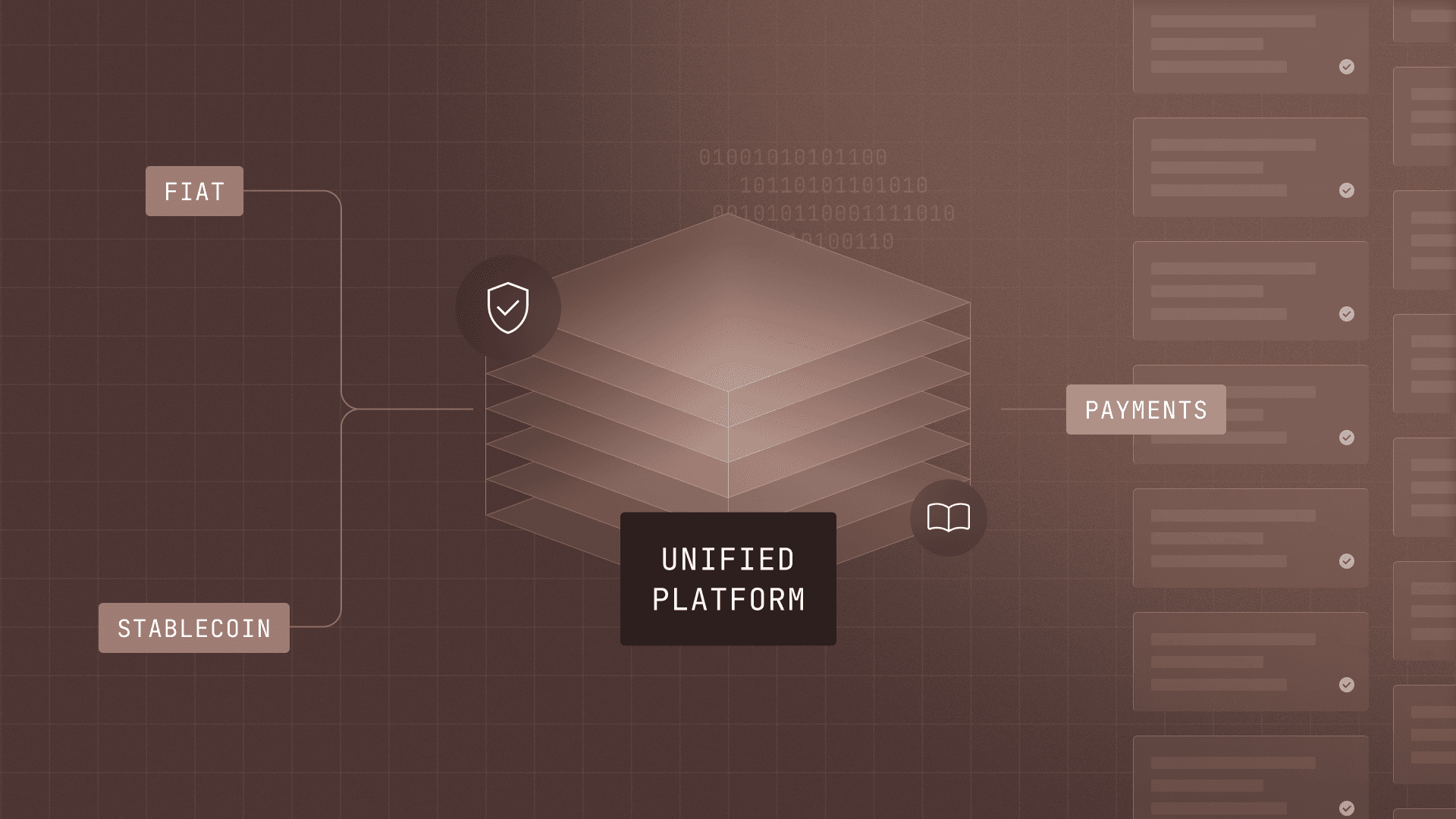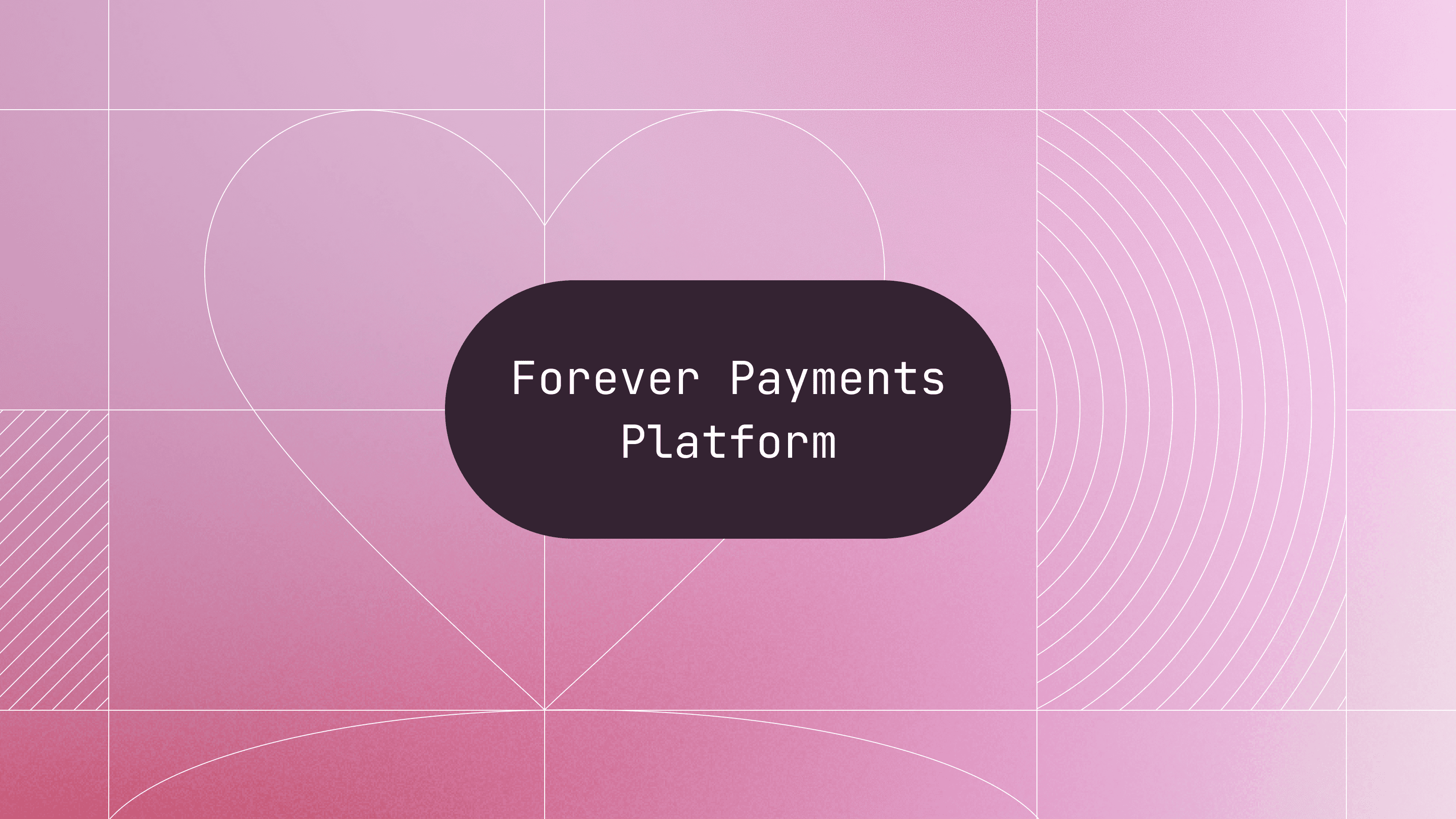How Insurance Companies Use Modern Treasury
Managing payment flows within an insurance company can be difficult. In this article, we share how insurance companies can use Modern Treasury to help with three common payment operations challenges.

Previously we’ve written about building basic payment flows within an insurance company—from onboarding a user, to collecting their first premium payment, to paying out a claim. When processing thousands of policies and claims, these payment flows become challenging to manage efficiently. In this article, we’ll review how Modern Treasury can help with three common payment operations challenges within insurance.
As an illustrative example we’ll return to Getco, an up-and-coming auto insurance startup. The company expects to grow quickly over the next few years and is focused on building for scale. Their user experience is as follows:
- Application: Devyn Driver, a Getco user, can go to the online portal to apply for auto insurance. Based on Devyn’s vehicle and driver history, Getco provides a quote for an auto policy.
- Regular payments: If Devyn Driver buys the policy, they will need to pay at regular intervals to prevent their coverage from lapsing. They can set up recurring payments or remember to pay each time they receive an invoice from Getco.
- Claim: In the event of an accident, Deyvn Driver can file a claim to receive financial compensation. Getco’s team reviews and decides whether the claim is covered, and if it is approved, the payment ops team will initiate payout.
Premium Collections
To set up a premium collection process, here are a few capabilities Getco may want to think about:
- Accepting multiple forms of payment: Insurance companies cater to a wide demographic with different payment preferences. Customers expect the flexibility of multiple payment options such as card, ACH, and checks.
- Reconciling payments at scale: After invoicing their customer, Getco needs to know when the payment has reached its bank account successfully. Reconciliation is a time-consuming process; teams can spend hours tracking down individual payments from their bank statements, confirming the amounts, and then manually updating the policy records in the agency’s internal management system.
- Handling multiple installments: While some customers buy a 12-month policy and pay their entire premium balance upfront, insurance companies commonly offer some form of a payment plan (e.g. in monthly, quarterly, semiannual installments). If Getco decides to build such an offering, then it will need to track pending balances and provide visibility to the customer on what they owe.
- Reversing payments on canceled policies: If a customer requests to cancel their auto policy mid-term, Getco needs to trace the original payment and refund the premium on the unused portion of their policy. Moreover, if any third parties (e.g. brokerages or distribution partners) were involved in the original sale, Getco may also need to reverse their commission payments.
How Modern Treasury can help
- With our Payments product, Getco can initiate payments over bank rails (ACH, wire, RTP) and manage expected incoming payments from their customers with one API. All payments are automatically reconciled as soon as they hit their bank account, reducing the need for manual processes. They can also use Modern Treasury APIs to plug payments data directly into their internal agency management system to automatically update premium collection statuses.
- With our Ledgers product, Getco can keep track of outstanding premium balances across thousands of customers. Ledgers is a managed database for high volume financial transactions that can be integrated via a simple API, allowing Getco to automatically update and monitor premium balances as customers make payments through their app.
Claims Payouts
For insurance companies like Getco, the claims journey can make or break a customer's experience, regardless of their interactions leading up to that point. If a customer gets into a car accident and then runs into challenges filing, resolving, or getting paid for their claim, they quickly become a churn risk.
To ensure a smooth claims experience, Getco can consider the following:
- Paying out claims quickly: Waiting weeks for a claim payment to arrive can be frustrating for the customer, especially if the claim itself only took a day or two to resolve. Checks are notoriously slow, and online payment processors introduce 5-7 days of waiting time. Increasingly, customers are asking for faster ways to get paid out through new digital payment methods.
- Tracking coverage limits: Each insurance policy comes with limits that determine the maximum amount an insurer will cover before the customer needs to pay out-of-pocket. These can be at different levels of detail; for example, if a Getco customer files a claim for a car accident, they may be subject to coverage limits per person, per accident, and/or per policy year. Getco needs to track payouts reliably against each of these limits.
- Managing complexity: A claims administration team deals with multiple sources of complexity. In some cases, the insurer is required to pay out several different recipients, not just the policyholder (e.g. for a collision, this could be the vehicle owner and auto shop). If multiple policies were involved in the claim, then the insurance company might need to issue several payments and track which policies they were incurred against. Keeping track of balances owed across multiple claimants and policies in force can help avoid delays and errors.
How Modern Treasury can help
- Getco can use Payments to pay out claims more quickly over bank rails (in 24 hours on ACH, or instantly with RTP). Most third party senders, like Stripe or Dwolla, require 5-7 days for processing because they sit in the flow of funds. With Modern Treasury, Getco can initiate payments directly through their bank account without the processor as an intermediary.
- For processing larger or more complex claims, Getco can set up approvals within the Modern Treasury web app and assign internal users custom roles and permissions to approve or deny payments.
- Ledgers provides robust balance tracking to streamline claims operations, thereby reducing processing time and delays. We give customers the flexibility to configure Ledgers according to their use case(s). For example, if an insurance carrier deals with large claims that are paid out in multiple installments, they may use Ledgers to manage outstanding balances. As another example, Ledgers can help the insurer track how much they have paid in total against a policy’s coverage limits.
Commissions
In our example, let’s say that Getco begins exploring additional distribution channels for growth. They decide to partner with Modern Brokerage, an insurance broker that sells auto policies on Getco’s behalf.
When Modern Brokerage sells a Getco policy, it takes a cut of the total premium (commission). Commission rates vary depending on time of year, type of policy sold, and other factors. As Getco scales, managing commissions efficiently across thousands of policies can be a significant payment operations challenge.
Some areas to consider when navigating commissions:
- Direct bill versus agency bill: Now that a middleman is involved in the transaction, payment flows will vary depending on who is responsible for billing the customer. There are two scenarios:
Direct bill: Customer is billed by Getco; Getco sends commission to Modern Brokerage and keeps the remainder.
Agency bill: Customer is billed by Modern Brokerage; Modern Brokerage nets out its commission and sends the remaining amount to Getco.
In either scenario, Getco needs to make sure that it is calculating commissions accurately, and then sending and receiving payments in the right amount. Failure to do so not only poses operational challenges, but also creates the potential for missed revenue. - Tracking owed balances: For a high transaction volume business like auto insurance, Getco may be selling or renewing hundreds of policies through Modern Brokerage each year. Each of these policies can have their own commission rate, and is subject to reversals in the event of cancellations or non-pay. To manage all this complexity, Getco needs to track how much they owe their distribution partners and what has been paid out versus not.
How Modern Treasury can help
- With Payments, Getco can programmatically initiate and reconcile commissions payments. It can also use expected payments to track incoming premium amounts from its distribution partners.
- Ledgers can help Getco automatically track commissions and payout balances for their distribution partners as payments are made and received. It can also provide a complete history of cancellations, renewals, and other transaction types.
This article covers a few common payment operations challenges in the insurance space that Modern Treasury can help tackle. We used Getco as an example here, but the exact use case can vary by the type of insurance sold, as well as the type of distribution model that a company uses to sell insurance (e.g. carrier versus MGA versus brokerage).
For a customer-specific example, feel free to check out our case study with Sana, a health insurance company. To learn more about Modern Treasury, please reach out to us.







